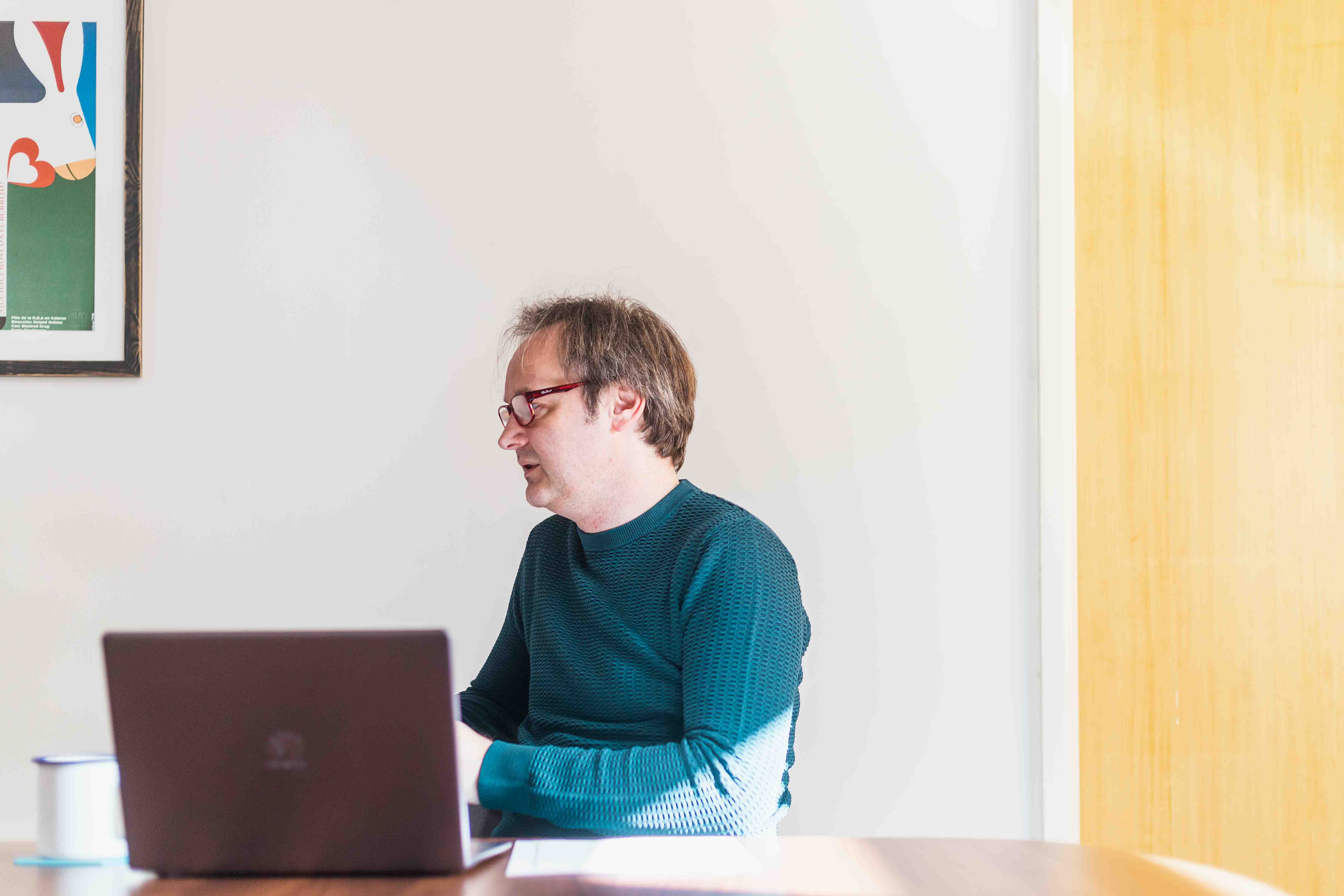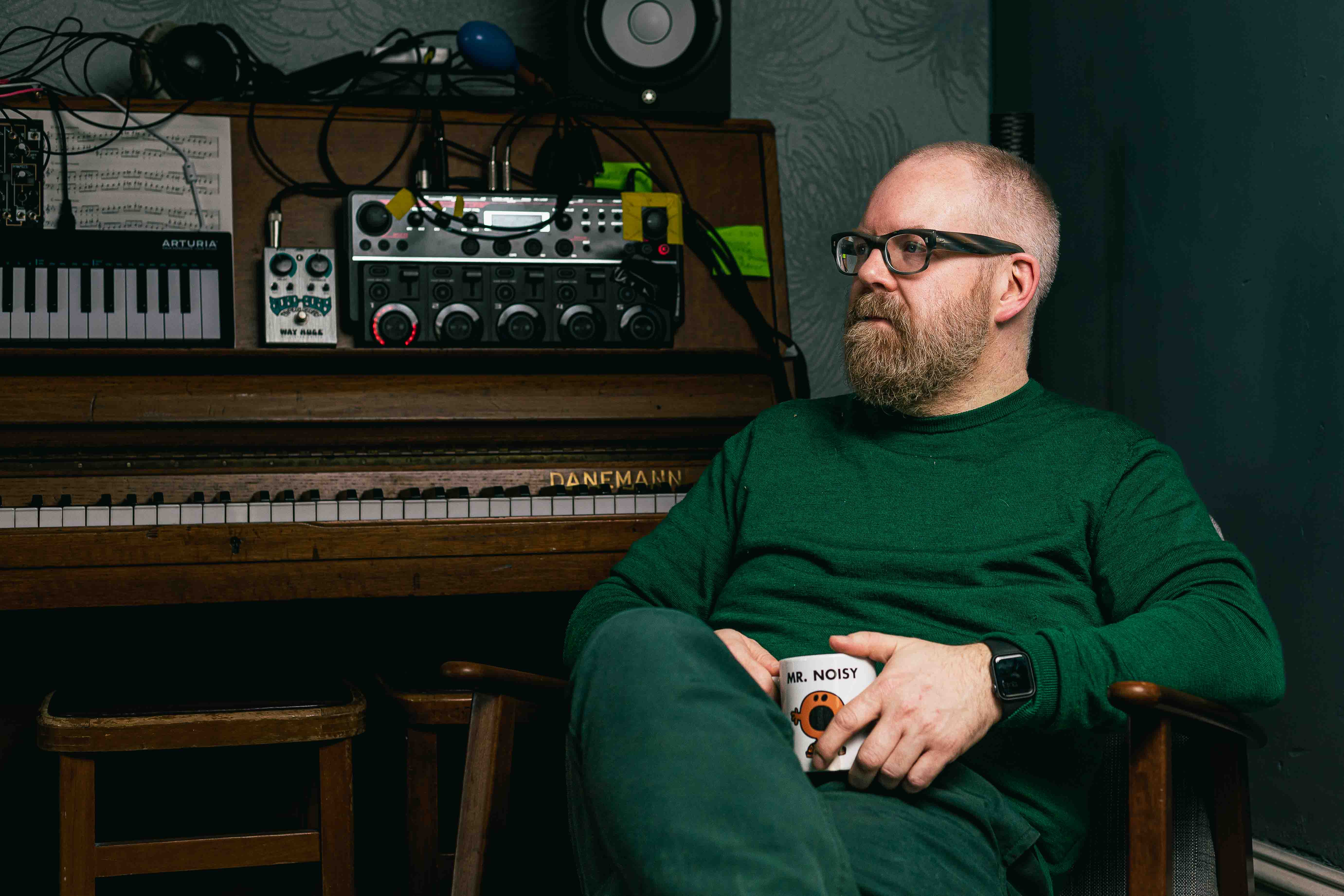I’m walking along the beach at Egremont, the sand-fringed strip of Left Bank I call home.
A sea fret has settled, stubbornly, over the Mersey. Liverpool has vanished. Even the tops of those supercranes have been swallowed up by an all-enveloping tsunami of coastal fog.
It’s a meteorological condition we’re well used to around these parts. The cool sea air has pushed the moisture out of the warmer air above, forming tiny spheres of water which pillow into rolling banks of maritime mist.
I resist the urge to show Instagram that Liverpool has been wiped off the map.
The other side of the water is still there. And we’re still here. Because let’s get things straight from the get go. We are, and we always will be, this side of the water. No matter what the taxi drivers, the Echo, or your friends in south Liverpool will have you believe.
We are not the other anything. An overspill, a counterweight, a second fiddle. Perspective is everything. And right now, from where I’m standing, there is nowhere else in the world but here.
At the sharp edge of the Wirral, sea and sky shape us as much as the ground beneath our feet. Shops, schemes and shipyards might ebb and flow, but the restless tides of the Mersey, the great yawning mouth of Liverpool Bay, and the widescreen skies over the Irish Sea are our constant companions.
But what is it about this sliver of land that shapes us too? Why here, when there’s a perfectly reasonable Wirral Line escape route to Crosby?
I’ve lived here all my adult life, save for a foolhardy couple of years in Manchester. But I’m stubborn, hate big cities, and love my mum’s roast dinners, so maybe my opinion doesn’t count for much. Or maybe it does. Maybe that’s exactly the point?

For business owner Kurt Beaumont-Jones, who runs Vigo IT in Birkenhead, the answer is simple. Being here is about having it all.
“When I started my business 15 years ago, everyone was focused on Liverpool, so we slipped under the radar,” he says. Now, his company has a £2 million turnover and employs 20 local IT magicians.
“People said I wouldn’t be able to attract the talent,” Kurt says. But, as we so often and enjoyably like to prove around here, the prevailing wisdom was wrong. “Not only have I found them, they’re sticking around too,” Kurt says, “despite companies from Liverpool and Manchester regularly trying to poach them.
“Who wants to drive two hours to Manchester every morning and back again anyway?” Kurt adds.
For Kurt, big cities are fertile territory when it comes to clinching contracts. But as we’re all starting to realise post-pandemic, being there isn’t a prerequisite to working there. “Tech can be done remotely. Most things can these days,” Kurt says. “And when I’ve finished, I’m home, or on the beach within half an hour.”
But, Kurt believes, choosing to locate here offers something more fundamental than opting out of the pull of the big city.
“Other businesses treat staff like a resource. It’s about how much they can squeeze out of them. Maybe I’m biased, but that’s another thing about this place. You don’t start each day stressed, looking for parking, fighting the peak hour traffic, so you have more time for people.
“Being here, you tend to have space in your head to think about the important stuff, and perhaps even be kinder,” Kurt says. Not all of us can build up a business with a seven-figure turnover, though. For many, the Left Bank offers a chance to reconnect. Space to think.

Creative director Scott Jones and his family have just moved over from Liverpool to Rock Ferry’s Egerton Park.
“Our two young daughters love going in the garden and the rest of the park, spotting wildlife and birds,” Scott says.
Attracted to the area’s open spaces and sense of possibility, Scott sees the move as a chance to recalibrate the way he plugs into his own sense of purpose, having just finished an MA in experimental communication at the Royal College of Art.
“Egerton Park’s a microcosm of Wirral in many ways,” Scott says. “Everything is churned up together. Big, rambling houses, 1970s estates, social housing and rich heritage assets all coexist within virtually the same street.”
For Scott, who’s designed sleeve artwork for the likes of She Drew The Gun, The Coral, and Arctic Monkeys, it’s this rich stew of cultures and communities that most excites him.
“I want to explore ways we can connect, and build smarter and more sustainable communities,” Scott says. “In Liverpool everyone tends to be quite protective of their piece of the pie, whereas on the Wirral it feels like people are more aware of the need to support each other in order to galvanise change.”
The move to this side of the water, Scott says, is a chance for him to look at the world afresh. A way to throw light on unexpected places, at unexpected angles.
“I get a real sense that there’s a willingness, here, for people to cross cultural and social barriers,” Scott says. “For me, that’s how regeneration starts.”
It’s early days - Scott’s only just arrived - but already he’s speaking about schemes such as a community pavilion in Egerton Park, inviting his newly-forged friends and neighbours to have a real say in what happens next.
“There’s been a residents’ committee in Egerton Park since 1850,” Scott says. “There’s a real appetite for people to come together and make change, tidy the area up, and create their future. It’s a really exciting time to be a part of that.”
It’s this deep connection with the area’s heritage and history that inspires Cathy Roberts, who runs New Brighton’s Literally bookshop with partner Peter Grant.
“As a child I loved the train journey from Liverpool,” Cathy says. “The sudden revelation of the bay as the train cleared the houses never failed to impress me. It still does, even though I make that journey nearly every day.”
For Cathy, New Brighton always meant fun: “When a shop came up just opposite the station we knew we could present a great welcome greeting to the resort,” she says.
“Life on the coast is sometimes calming and often challenging – but ultimately it makes you realise you’re part of something much greater,” Cathy says.
There’s a perception, Cathy believes, that the seaside is a place to retire and slow down. But New Brighton’s never really been like other seaside towns: a genteel place to while away your golden years, and not make a fuss.
There's a restless, rebellious energy here that runs way deeper than the energetic paint splashed on the buildings of Victoria Street.
It was always so, at the sharp end of the Wirral – and it’s something Cathy is proud to be a part of. “New Brighton is full of life and energy,” she says, “but the area needs to stand up for itself more than ever.
“Our community remains fiercely proud of this special place. Every decade brings promises and threats. We don’t need any more consultants, we just need to ensure we’re still here for future generations.
“Literally living on the edge presents an entirely different perspective full of possibilities. You never know what the tide will bring. This coastline – with its wayward westerly winds – is charged with vitality. It’s a creative spark plug.”
You can peer into the future from New Brighton. If you stand on the promenade, you’re looking 200 miles into those prevailing weather systems. You can see the storm approaching; prepare for what’s coming next. It makes us nimble. Resourceful. Inventive and unpredictable.
Maybe that’s why we’re still here – it pays to be one weather front ahead of the competition.